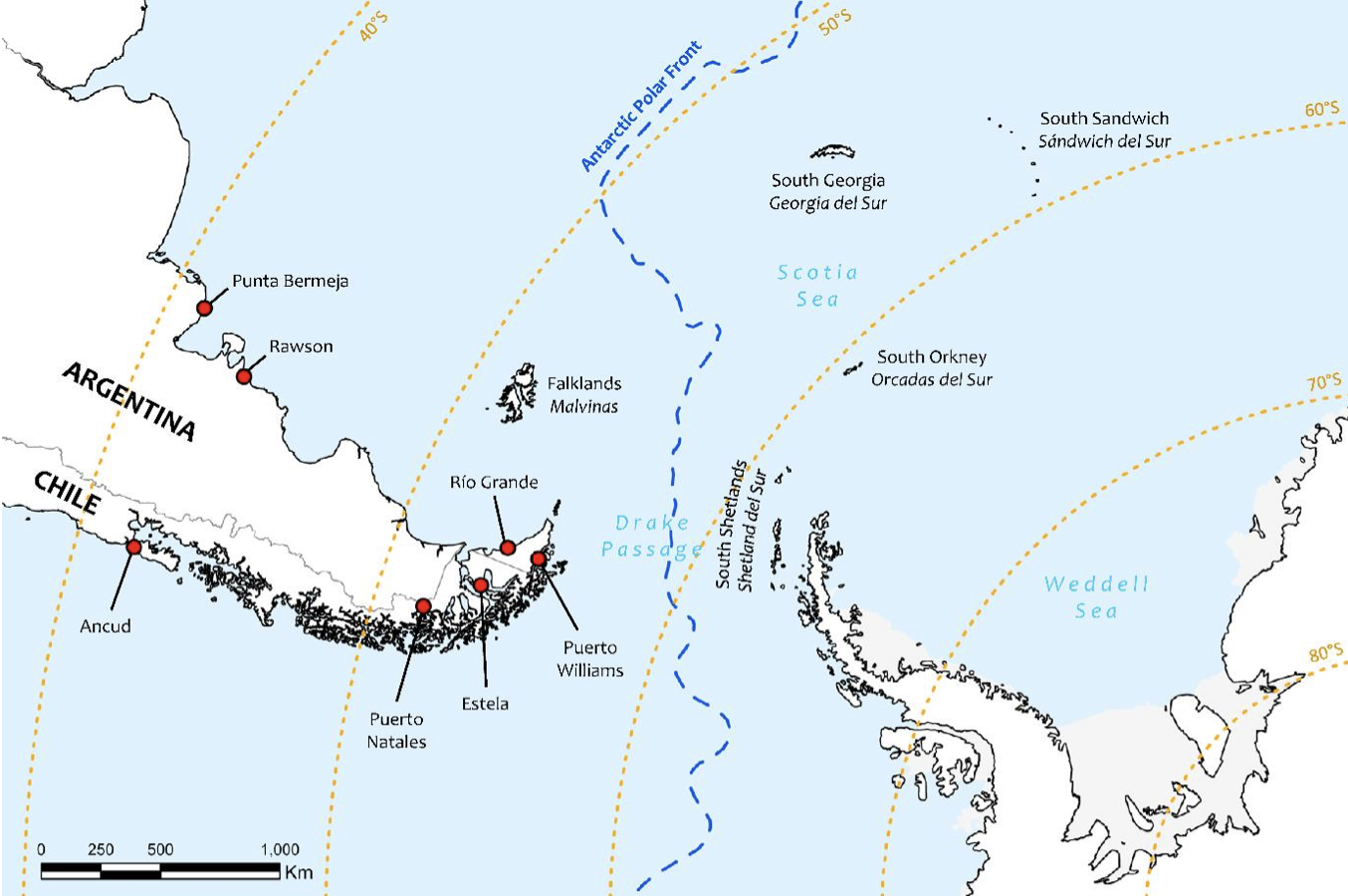 Figure from the Statement. Map of the southern tip of South America and western Antarctica, indicating localities and island groups mentioned in the text. Notable locations in South America mentioned in the text are denoted by a red circle.
Figure from the Statement. Map of the southern tip of South America and western Antarctica, indicating localities and island groups mentioned in the text. Notable locations in South America mentioned in the text are denoted by a red circle.
The OFFLU (WOAH/FAO Network of Expertise on Animal Influenza) ad-hoc group on HPAI H5 in wildlife of South America and Antarctica have released a statement on the spread of high pathogenicity avian influenza of the subtype H5 in South America.
The spread of HPAI H5 virus across South America has been rapid and its effects on wild bird and mammal populations devastating. Since its detection in Columbia in October 2022, the virus has spread approximately 6,000 km in only three months, with the most southern detection having been reported in a South American sea lion at Puerto Williams, Chile. There is mounting concern that HPAI H5 virus will continue its southward trajectory and reach Antarctica and its offshore islands, posing a significant risk to wildlife.
“This risk may be increased in coming months due to the spring migration of wild birds from South America to breeding sites in the Antarctic. The negative impact of HPAI H5 on Antarctic wild birds and mammal populations could be immense, both because of their likely susceptibility to mortality from this virus, and their occurrence in dense colonies of up to thousands of pinnipeds and hundreds of thousands of birds, allowing efficient virus transmission.”
Detection and response options such as surveillance and accurate documentation of HPAI-H5-associated mortality events, and following guidelines to reduce risk of human-mediated virus spread are outlined in the statement.
The full statement from OFFLU is available to download, here.
Reference:
Breed, A., Dewar, M., Dodyk, L., Kuiken, T., Matus, R., Serafini, P.P., Uhart, M., Vanstreels, R.E.T., Willie, M. 2023. Southward expansion of high pathogenicity avian influenza H5 in wildlife in South America: estimated impact on wildlife populations, and risk of incursion into Antarctica.
Disclaimer: This statement provides the point of view of independent OFFLU experts, and does not necessarily reflect the position of the parent organisations FAO and WOAH.
30 August 2023

 Français
Français  English
English  Español
Español